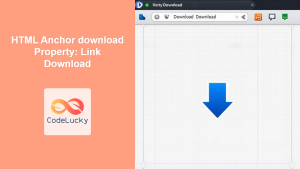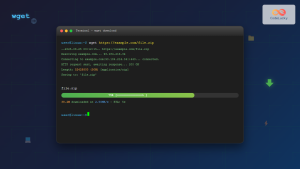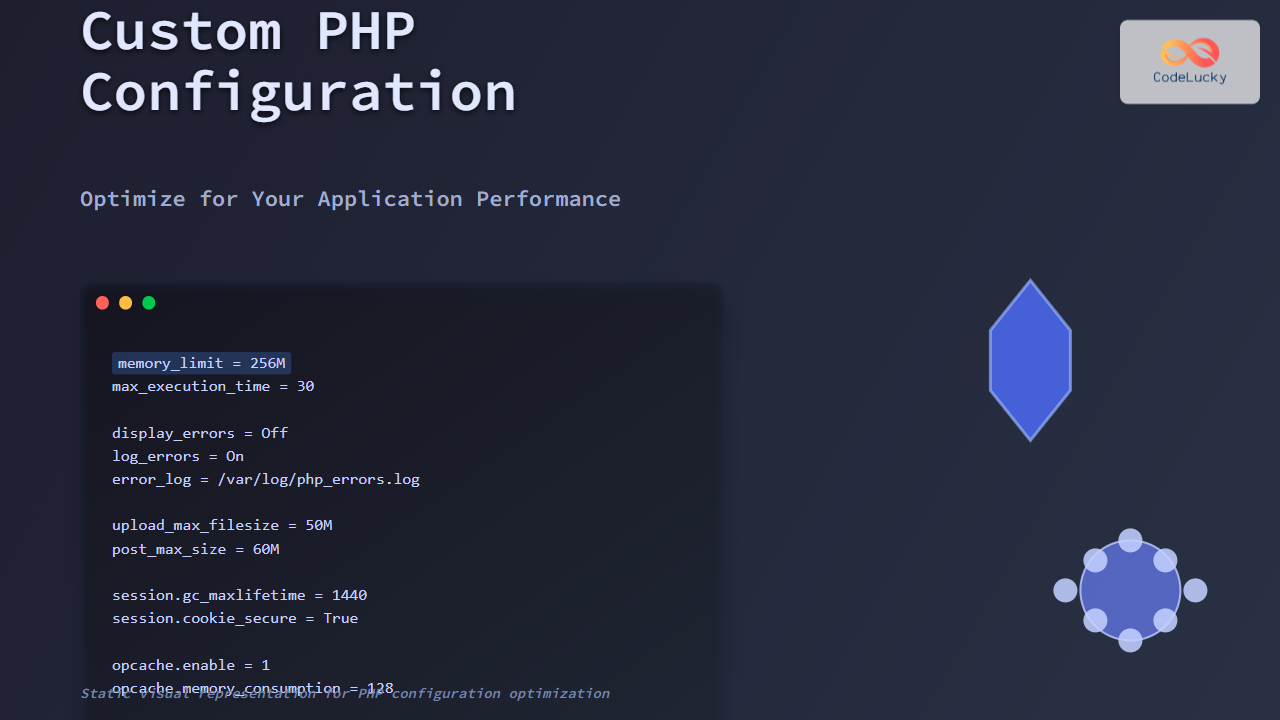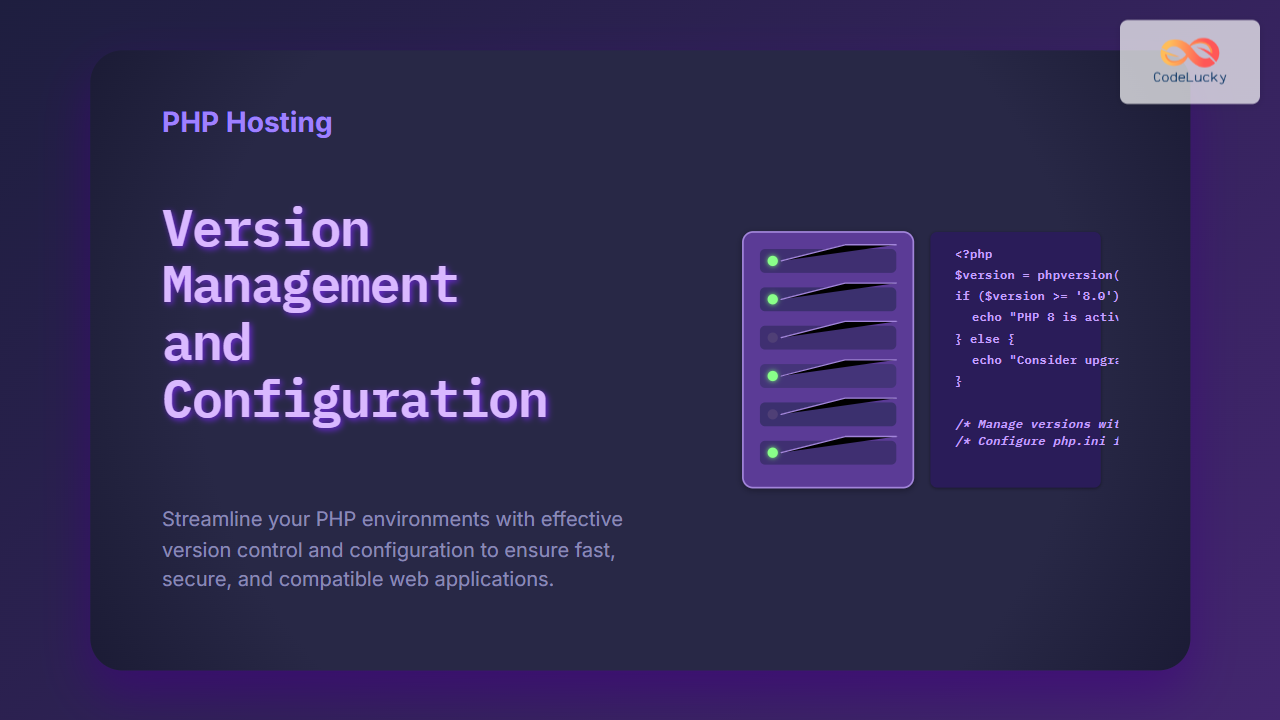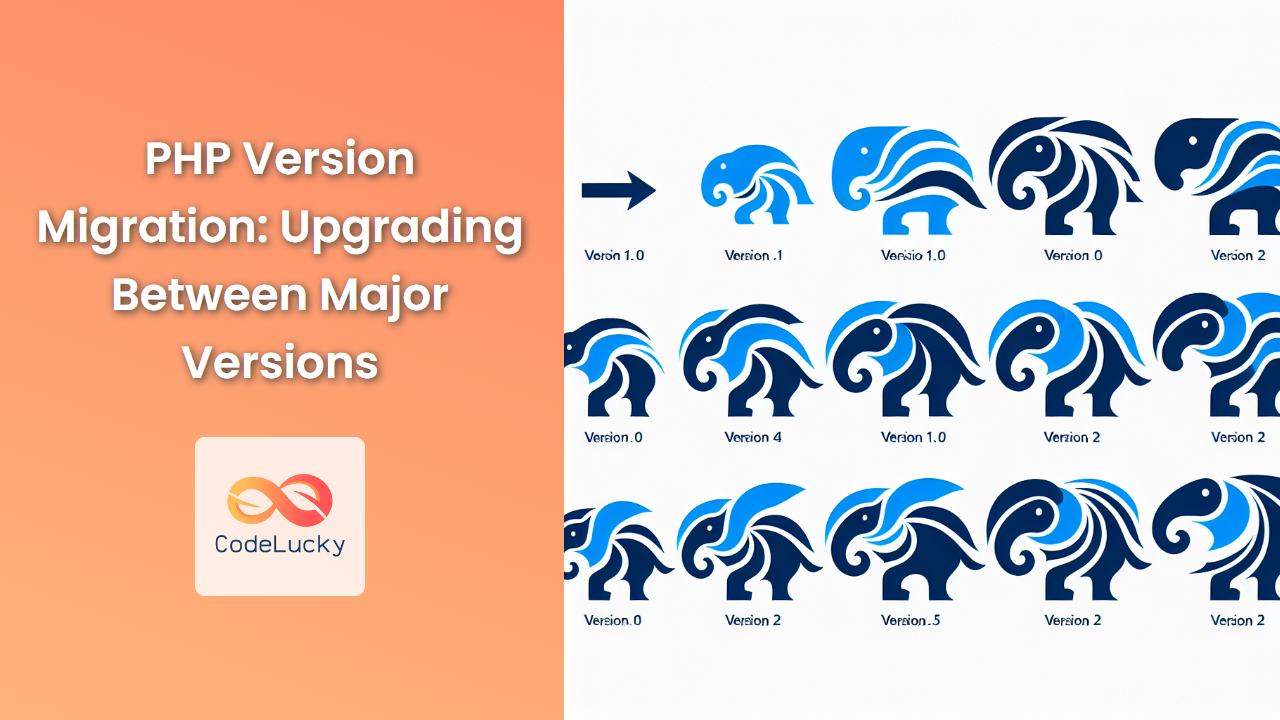In the world of web development, providing users with the ability to download files is a common requirement. Whether it's offering downloadable resources, sharing documents, or allowing users to retrieve their data, PHP offers powerful tools to facilitate file downloads. In this comprehensive guide, we'll explore various methods and best practices for implementing file downloads in PHP.
Understanding File Downloads in PHP
Before we dive into the code, let's briefly discuss what happens when a user downloads a file from a web server:
- The user clicks a download link or button.
- The browser sends a request to the server.
- The server processes the request and prepares the file for download.
- The server sends appropriate headers to instruct the browser to handle the file as a download.
- The file content is sent to the browser.
- The browser prompts the user to save or open the file.
Now, let's explore different techniques to implement this process in PHP.
Method 1: Basic File Download
Let's start with a simple example of how to serve a file for download using PHP.
<?php
$file = 'documents/sample.pdf';
if (file_exists($file)) {
header('Content-Description: File Transfer');
header('Content-Type: application/octet-stream');
header('Content-Disposition: attachment; filename="'.basename($file).'"');
header('Expires: 0');
header('Cache-Control: must-revalidate');
header('Pragma: public');
header('Content-Length: ' . filesize($file));
readfile($file);
exit;
}
Let's break down this code:
- We specify the path to the file we want to serve.
- We check if the file exists using
file_exists(). - If the file exists, we set various headers:
Content-Descriptioninforms that this is a file transfer.Content-Typeis set toapplication/octet-stream, which is a generic binary data type.Content-Dispositiontells the browser to treat this as an attachment and suggests a filename.Expires,Cache-Control, andPragmaheaders control caching behavior.Content-Lengthspecifies the size of the file.
- We use
readfile()to output the file contents. - Finally, we call
exitto ensure no additional content is sent.
🚀 Pro Tip: Always validate and sanitize file paths to prevent unauthorized access to files on your server.
Method 2: Forcing Download for Specific File Types
Sometimes, you might want to force a download for files that browsers typically display inline (like images or PDFs). Here's how you can modify the previous example to achieve this:
<?php
$file = 'images/photo.jpg';
$filename = basename($file);
if (file_exists($file)) {
$finfo = finfo_open(FILEINFO_MIME_TYPE);
$mime_type = finfo_file($finfo, $file);
finfo_close($finfo);
header('Content-Type: ' . $mime_type);
header('Content-Disposition: attachment; filename="'.$filename.'"');
header('Content-Length: ' . filesize($file));
header('Content-Transfer-Encoding: binary');
header('Cache-Control: must-revalidate, post-check=0, pre-check=0');
header('Expires: 0');
header('Pragma: public');
readfile($file);
exit;
}
In this example:
- We use
finfo_open()andfinfo_file()to determine the correct MIME type of the file. - We set the
Content-Typeheader to this MIME type. - We force the download by setting
Content-Dispositiontoattachment. - We add a
Content-Transfer-Encoding: binaryheader for binary files.
🔍 Note: This method ensures that even files like images or PDFs, which browsers might normally display, will be downloaded instead.
Method 3: Streaming Large Files
When dealing with large files, reading the entire file into memory with readfile() can be inefficient. Instead, we can stream the file in chunks:
<?php
$file = 'large_video.mp4';
$filename = basename($file);
if (file_exists($file)) {
$finfo = finfo_open(FILEINFO_MIME_TYPE);
$mime_type = finfo_file($finfo, $file);
finfo_close($finfo);
header('Content-Type: ' . $mime_type);
header('Content-Disposition: attachment; filename="'.$filename.'"');
header('Content-Length: ' . filesize($file));
header('Cache-Control: no-cache');
header('Pragma: no-cache');
$handle = fopen($file, 'rb');
$buffer = '';
while (!feof($handle)) {
$buffer = fread($handle, 4096);
echo $buffer;
ob_flush();
flush();
}
fclose($handle);
exit;
}
This method:
- Opens the file using
fopen()in binary read mode. - Reads the file in 4KB chunks using
fread(). - Outputs each chunk and immediately flushes the output buffer.
- Continues until the end of the file is reached.
💡 Tip: This approach is memory-efficient and works well for large files that shouldn't be loaded entirely into memory.
Method 4: Resumable Downloads
For very large files, it's useful to support resumable downloads. This allows users to pause and resume downloads, which is especially helpful for unstable connections.
<?php
$file = 'huge_dataset.zip';
$filename = basename($file);
if (file_exists($file)) {
$size = filesize($file);
$finfo = finfo_open(FILEINFO_MIME_TYPE);
$mime_type = finfo_file($finfo, $file);
finfo_close($finfo);
$start = 0;
$end = $size - 1;
if (isset($_SERVER['HTTP_RANGE'])) {
$c_start = $start;
$c_end = $end;
list(, $range) = explode('=', $_SERVER['HTTP_RANGE'], 2);
if (strpos($range, ',') !== false) {
header('HTTP/1.1 416 Requested Range Not Satisfiable');
header("Content-Range: bytes $start-$end/$size");
exit;
}
if ($range == '-') {
$c_start = $size - substr($range, 1);
} else {
$range = explode('-', $range);
$c_start = $range[0];
$c_end = (isset($range[1]) && is_numeric($range[1])) ? $range[1] : $size;
}
$c_end = ($c_end > $end) ? $end : $c_end;
if ($c_start > $c_end || $c_start > $size - 1 || $c_end >= $size) {
header('HTTP/1.1 416 Requested Range Not Satisfiable');
header("Content-Range: bytes $start-$end/$size");
exit;
}
$start = $c_start;
$end = $c_end;
$length = $end - $start + 1;
header('HTTP/1.1 206 Partial Content');
header("Content-Range: bytes $start-$end/$size");
} else {
$length = $size;
header('HTTP/1.1 200 OK');
}
header('Content-Type: ' . $mime_type);
header('Content-Disposition: attachment; filename="'.$filename.'"');
header('Accept-Ranges: bytes');
header('Content-Length: ' . $length);
$handle = fopen($file, 'rb');
fseek($handle, $start);
$buffer = 1024 * 8;
while (!feof($handle) && ($p = ftell($handle)) <= $end) {
if ($p + $buffer > $end) {
$buffer = $end - $p + 1;
}
echo fread($handle, $buffer);
ob_flush();
flush();
}
fclose($handle);
exit;
}
This advanced method:
- Checks for the
HTTP_RANGEheader to support partial content requests. - Calculates the appropriate range of bytes to send.
- Sends either a
206 Partial Contentor200 OKstatus depending on whether it's a range request. - Streams the file from the appropriate starting position.
🏆 Best Practice: Implementing resumable downloads significantly improves user experience for large file downloads.
Security Considerations
When implementing file downloads, security should be a top priority. Here are some important considerations:
- Path Traversal Prevention: Always validate and sanitize file paths to prevent unauthorized access to files outside the intended directory.
<?php
$file = 'downloads/' . basename($_GET['file']);
if (strpos(realpath($file), realpath('downloads/')) !== 0) {
die('Access denied');
}
- Authentication: Ensure that only authorized users can download files.
<?php
session_start();
if (!isset($_SESSION['user_id'])) {
die('Please log in to download files');
}
- Rate Limiting: Implement rate limiting to prevent abuse of your download system.
<?php
session_start();
$max_downloads = 5;
$time_frame = 3600; // 1 hour
if (!isset($_SESSION['downloads'])) {
$_SESSION['downloads'] = array();
}
$_SESSION['downloads'] = array_filter($_SESSION['downloads'], function($time) use ($time_frame) {
return $time > time() - $time_frame;
});
if (count($_SESSION['downloads']) >= $max_downloads) {
die('Download limit exceeded. Please try again later.');
}
$_SESSION['downloads'][] = time();
- Logging: Keep logs of file downloads for security auditing.
<?php
function log_download($file) {
$log = date('Y-m-d H:i:s') . ' | ' . $_SERVER['REMOTE_ADDR'] . ' | ' . $file . "\n";
file_put_contents('download_log.txt', $log, FILE_APPEND);
}
// Call this function before serving the file
log_download($file);
Enhancing User Experience
To provide a better user experience, consider implementing these features:
- Progress Indication: For large files, use JavaScript to show download progress.
<div id="progress-bar" style="width: 0%; height: 20px; background-color: #4CAF50;"></div>
<script>
var xhr = new XMLHttpRequest();
xhr.open('GET', 'download.php?file=large_file.zip', true);
xhr.responseType = 'blob';
xhr.onprogress = function(e) {
if (e.lengthComputable) {
var percentComplete = (e.loaded / e.total) * 100;
document.getElementById('progress-bar').style.width = percentComplete + '%';
}
};
xhr.onload = function() {
if (this.status === 200) {
var blob = new Blob([this.response], {type: 'application/zip'});
var link = document.createElement('a');
link.href = window.URL.createObjectURL(blob);
link.download = 'large_file.zip';
link.click();
}
};
xhr.send();
</script>
- File Information: Provide details about the file before download.
<?php
$file = 'documents/report.pdf';
$finfo = finfo_open(FILEINFO_MIME_TYPE);
$mime_type = finfo_file($finfo, $file);
finfo_close($finfo);
$file_size = filesize($file);
$file_date = date('F d, Y', filemtime($file));
echo "<h2>File Information</h2>";
echo "<p>Filename: " . basename($file) . "</p>";
echo "<p>File Type: " . $mime_type . "</p>";
echo "<p>File Size: " . round($file_size / 1024, 2) . " KB</p>";
echo "<p>Last Modified: " . $file_date . "</p>";
echo "<a href='download.php?file=" . urlencode(basename($file)) . "'>Download Now</a>";
Conclusion
Implementing file downloads in PHP involves more than just sending file contents to the browser. By following the methods and best practices outlined in this guide, you can create a robust, secure, and user-friendly file download system.
Remember to always prioritize security, validate user input, and consider the user experience. Whether you're serving small documents or large media files, PHP provides the tools you need to handle file downloads efficiently.
🌟 Pro Tip: Always test your download scripts thoroughly, especially with large files and under various network conditions, to ensure a smooth experience for all users.
By mastering these techniques, you'll be well-equipped to implement file downloads in your PHP projects, enhancing the functionality and value of your web applications. Happy coding!





